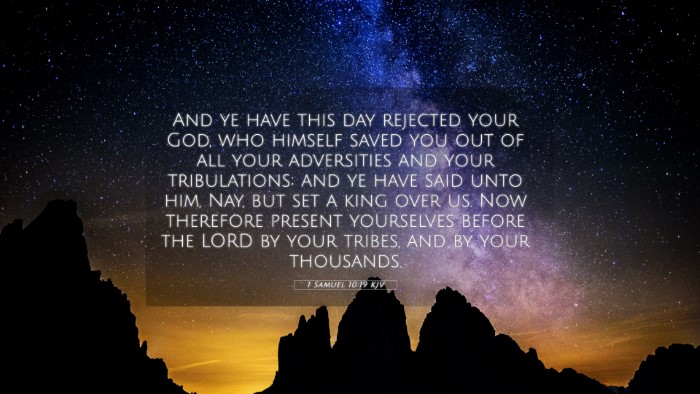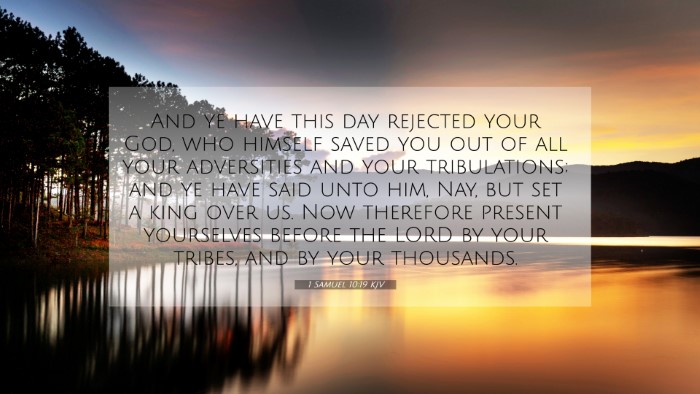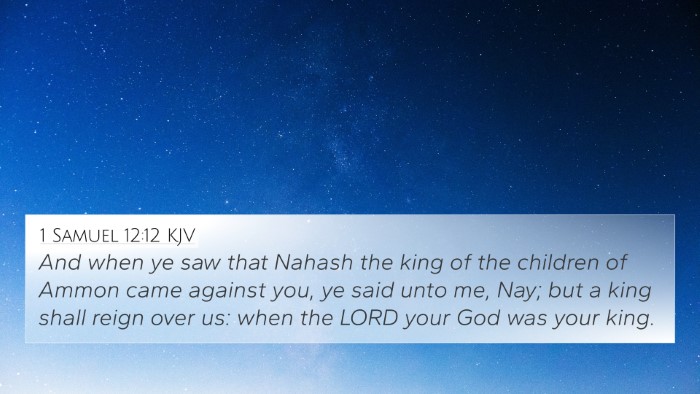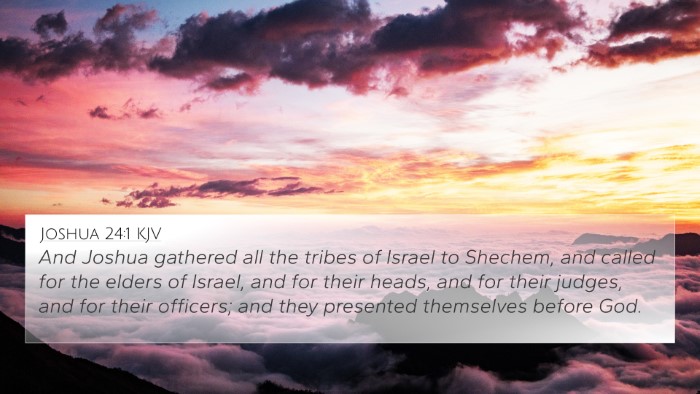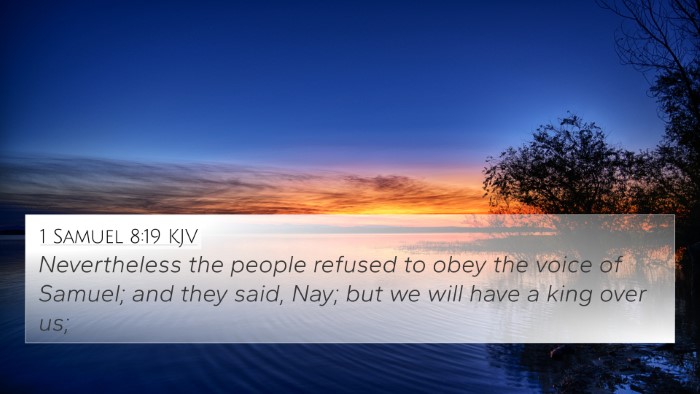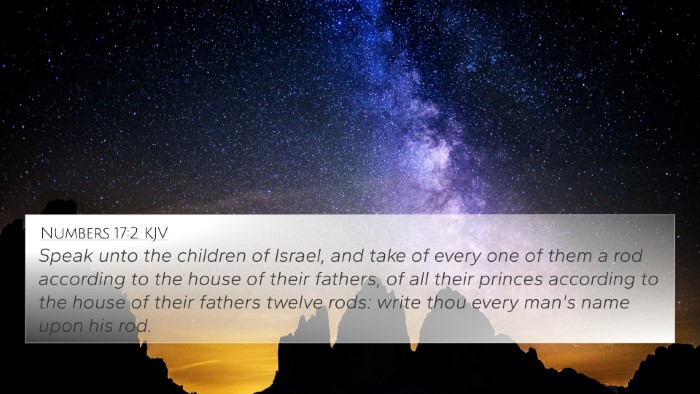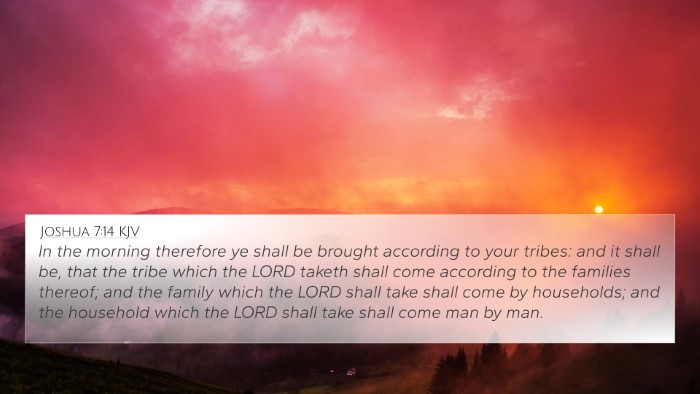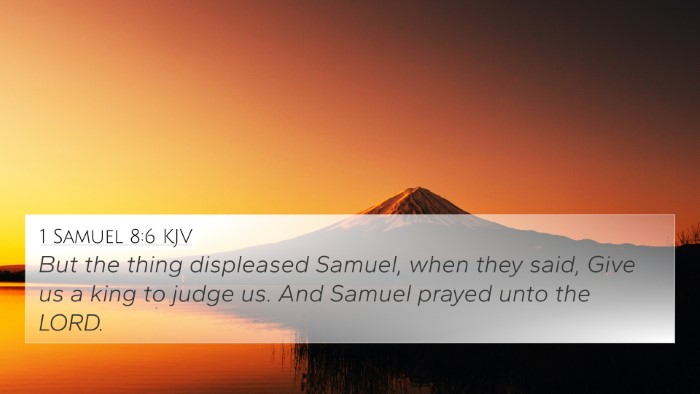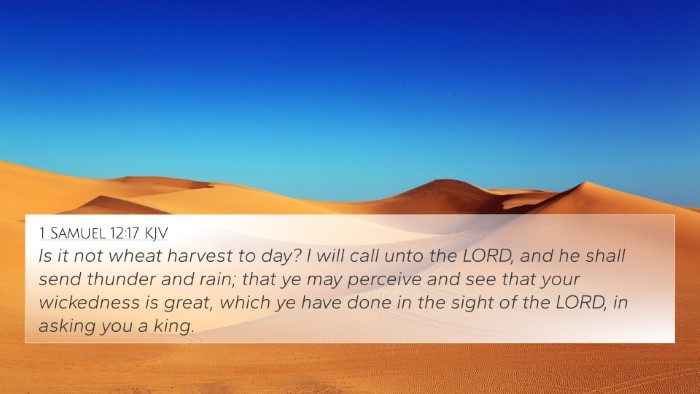Understanding 1 Samuel 10:19
This passage, 1 Samuel 10:19, is a pivotal moment in the scriptures where the people of Israel reject God as their king. The verse states:
"But you have today rejected your God, who himself saved you from all your disasters and your tribulations; and you have said to him, 'Set a king over us.' Now therefore, present yourselves before the Lord by your tribes and by your thousands."
Meaning and Interpretation
The verse encapsulates the essence of a profound spiritual crisis among the Israelites. By examining public domain commentaries such as those by Matthew Henry, Albert Barnes, and Adam Clarke, we can derive a rich understanding of the text.
- Matthew Henry emphasizes the deep irony of the people rejecting God who had saved them consistently. Their request for an earthly king illustrates their desire for conformity to surrounding nations, as they lacked faith in God's sovereignty.
- Albert Barnes draws attention to the consequences of their choice, indicating that the desire for a king was rooted in discontent and a lack of trust in divine leadership.
- Adam Clarke expands on the theme of rejection, asserting that Israel's demand for a king reflects a spiritual blindness and a disregard for God's past deliverance and guidance.
Thematic Connections
This verse showcases a significant turning point; it reflects broader themes evident throughout the biblical narrative including:
- Rebellion against God's authority
- Human desire for earthly leadership
- The nature of divine rejection
- The consequences of forsaking God's guidance
Bible Verse Cross-References
1 Samuel 10:19 has numerous connections with other scripture passages that enhance its interpretation:
- Deuteronomy 17:14-15: Provides God’s instructions for kingship in Israel.
- 1 Samuel 8:5: The initial demand for a king illustrates the root of the problem.
- Hosea 13:9: Discusses the consequences of rejecting God.
- 1 Samuel 12:12: Reaffirmation of God’s kingship over Israel before the appointment of Saul.
- Psalm 47:7: God as King over all the earth, contrasting earthly leadership.
- Jeremiah 2:13: God's lament over Israel's forsaking Him for empty cisterns.
- Luke 19:14: Parable of the nobleman signifies rejection of rightful kingship.
- 1 Samuel 13:13-14: God's judgment against Saul representing a cautionary tale.
- Isaiah 30:1-3: Warns against seeking human solutions instead of divine guidance.
- Romans 1:21-23: Highlights the implications of rejecting God’s truth and worship.
Linking Bible Scriptures
Connecting the ideas in 1 Samuel 10:19 to the themes found throughout the Bible reveals that:
- Many biblical figures faced the duality of divine leadership versus human authority.
- Israel's persistent cycle of faithfulness and rebellion mirrors themes in both the Old and New Testaments.
- Understanding the consequences illustrated here can help nurture one's faith and reliance on God over earthly matters.
Comparative Bible Verse Analysis
When analyzing 1 Samuel 10:19 in relation to its cross-references, we can observe the recurring patterns of:
- Divine patience in the face of rejection
- Human frailty and inclination towards physical representation of authority
- Lessons in faith that are repeatedly reiterated throughout scripture.
Conclusion
In conclusion, 1 Samuel 10:19 serves as a poignant reflection of humanity's struggles with faith and leadership. It invites readers to explore the broader implications of rejecting divine authority and the significance of seeking God's guidance in all aspects of life. By employing tools for Bible cross-referencing and understanding the connections between different biblical texts, one can gain a holistic view of God's covenant and the need for obedience to His will throughout scripture.
As believers delve into the Bible cross-reference guide, they encounter a rich tapestry of inter-Biblical dialogue that encourages a deeper understanding of faith and God’s relentless call towards fidelity and acknowledgement of His kingship.

